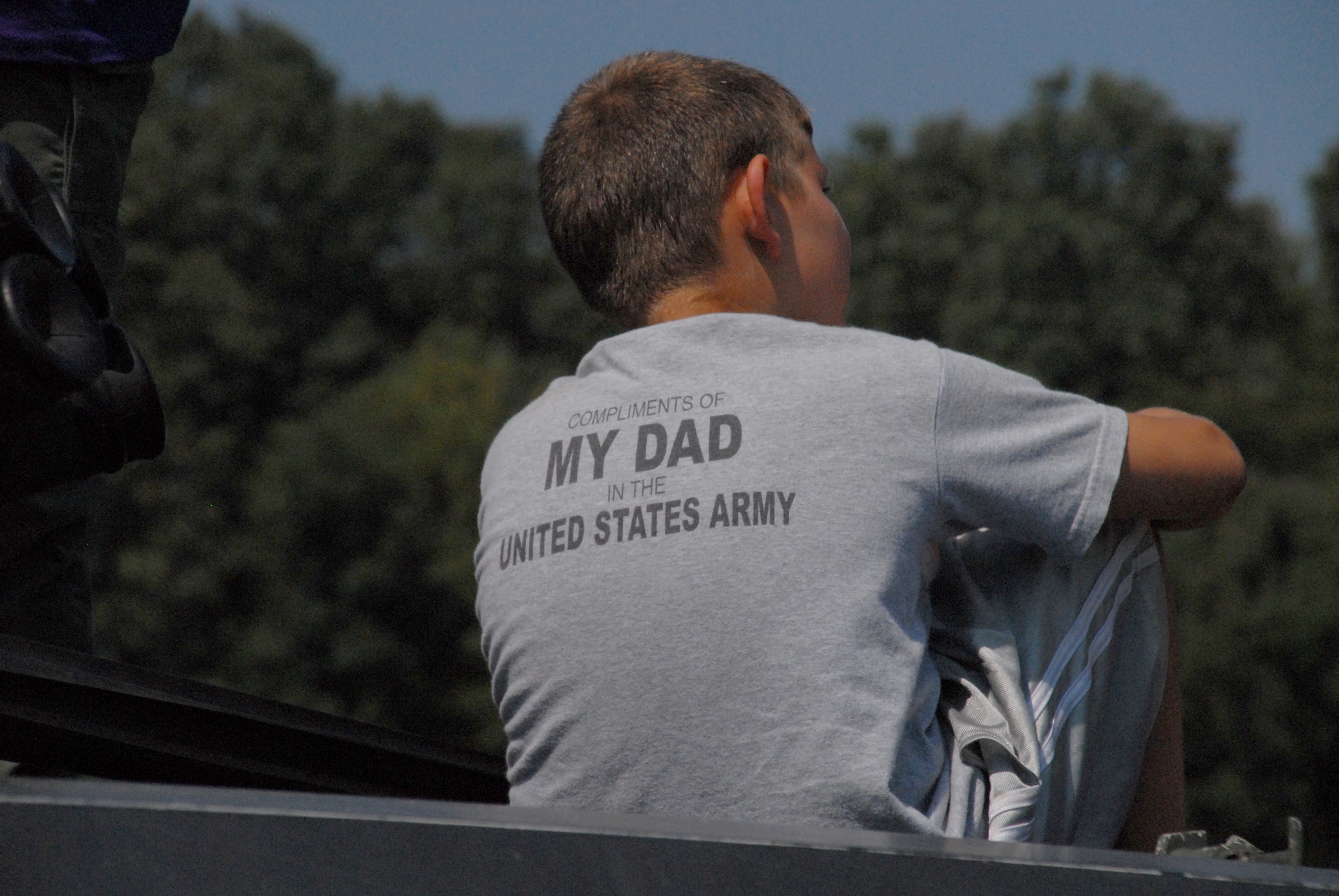WASHINGTON (Army News Service, Aug. 21, 2008) - Constant moving. Difficulty making and keeping friends. Parents who may leave for months at a moment's notice. Extra responsibilities. Loneliness. Missed birthdays and holidays. Constant fear that this time mom or dad might never come home.
These are the hallmarks of life as a military "brat," said Army kids at an Operation Purple summer camp for military children. But with these drawbacks come immense pride and patriotism, maturity, strength, along with a national and often global outlook.
Army kids also said that no matter what, they know their moms and dads are real-life superheroes.
"My mom's my hero since forever, because even before the war she was always a strong person," said 16-year-old Jeremy Beale. "She graduated when she was about my age. And knowing that this is her third time over, it's just amazing to me that the Army would send her three times and she would just keep going."
Jeremy's mother is currently on her third deployment to Iraq, and his father has also deployed. Jeremy said that his parents worked hard to keep from deploying at the same time, and that he's closer to his mother, so having her gone is particularly hard.
Although she tries to call every day, and both his grandmothers live with the family, he said it isn't the same. No amount of phone calls, e-mails, letters or packages can make up for a missing parent.
"It was really hard because my dad doesn't really do all of the taking care of and stuff - it was normally my mom," Jacob Gaz, 11, said. "The hardest part was just not having her there. Like when you accomplished something, she'd be all the way over in the world. You just couldn't tell her."
Like Jeremy, Jacob had grandparents who tried to fill the void when his mother was deployed to Kuwait in 2005, although Jacob said he also tried to look out for his little brother.
In fact, when one parent is gone, an older sibling like Jacob or 13-year-old Audrey Zipperer often has to take up some of the slack.
With her mother often busy as a family readiness group leader, Audrey said she became almost a second parent during her father's two deployments. She sometimes cooked dinner, she cleaned the house with her 9-year-old sister Abigail and she potty-trained her baby brother.
"Being an Army kid is definitely different than being your normal, average kid," she said. "We go through a lot tougher situations that require us to have certain things like courage and the ability to withstand pressure. And you have to be responsible, definitely."
"You have to be prepared for anything, because anything can happen and you have to be prepared for bad things and good things," added Abigail.
Audrey said that she got angry when her father left -- angry at him, angry at the situation and angry in general. It just wasn't fair, she said, but her mother would remind her that her father didn't start this war. She should be angry, her mother said, with the people who did.
"We'd cry and get sad, but we knew that we couldn't change it. We couldn't say, 'You can't do this.' It was his job. He had to do it," said Audrey.
Most of the kids had a special, treasured memento to help them stay connected to their absent parent as they counted down the days and cried when they had to add more days as deployments were extended.
Jacob has a bear with his mother's picture that he would look at when he missed her badly. Katherine Riley, 12, wore an anklet her grandmother had engraved with "Capt. Gerald B. Riley, be safe, come home soon." The two Zipperer girls had received stuffed animals with recordings of their father's voice from Build-a-Bear.
"I'd press the hand and the message came up. It's dead now because I pressed it so much when I was upset and I still sleep with it. It's really special. That helped a lot," said Audrey.
The kids also agreed that the uncertainty and confusion of deployments was exacerbated by frequent moves and starting over in schools that might not have many other military kids. Civilian kids might try to understand what it's like to send a parent to war, but it's impossible, they said.
"Some people think that starting over is pretty much something that they would want to do," said Jeremy. "Starting over's not always the greatest thing. This last move was the hardest because I moved right in the middle of middle school. Going to school off base was a little different because making friends with military kids would be easier because they have something in common. It's a little weird because you don't know what to say to kids or you don't know if they have military parents. You've just got to wing it."
Jeremy's mother actually deployed in order to avoid moving him in the middle of high school.
Like Audrey, he said it's useless to get mad or expect his parents to change who they are. He said that he's grateful to simply have parents when so many kids do not, especially parents he can be proud of.
"Army kids are full of pride," said Audrey. "Especially with our parents. I'm very proud of my dad. He looks to me for support and love and comfort...They can't help their job. They can't help what they do. We might not like them going overseas and stuff, but we have to know that that's what they signed up to do. They signed up to help protect our country. We just have to say, 'Okay, I love you so much. I'm so proud of you all the time.'"
(Editor's note: This article is a follow-up to Wednesday's article on Operation Purple camps. Elizabeth Lorge is a former Army brat.)


Social Sharing